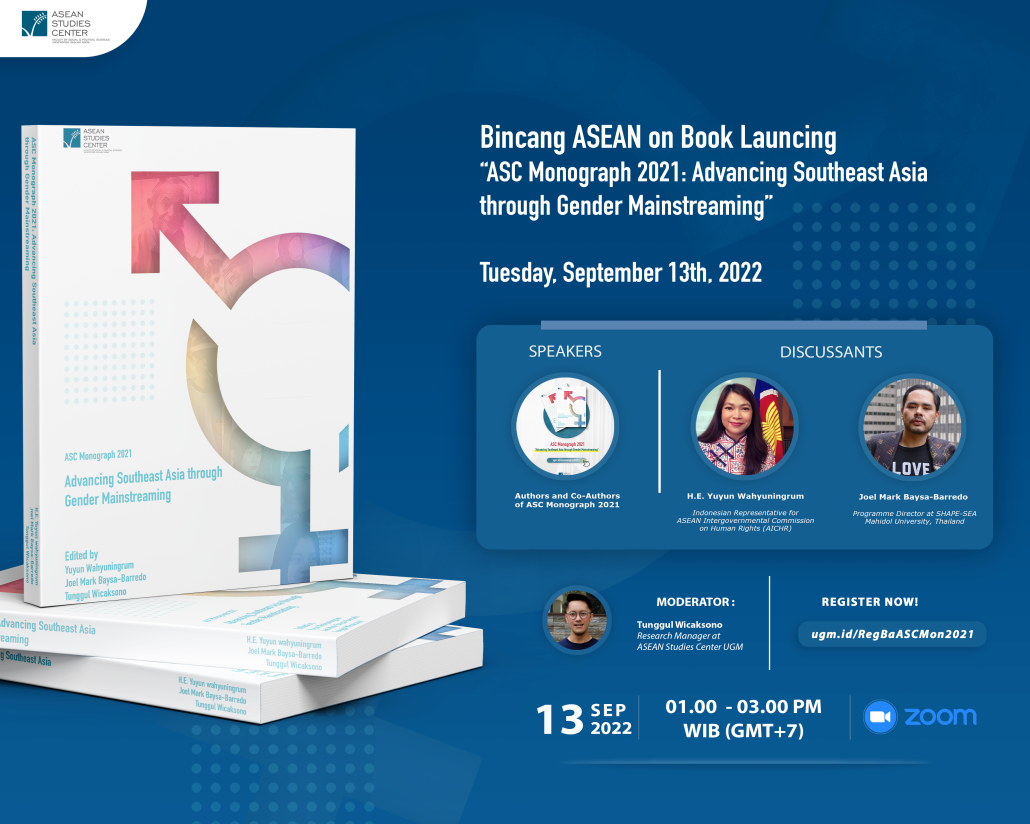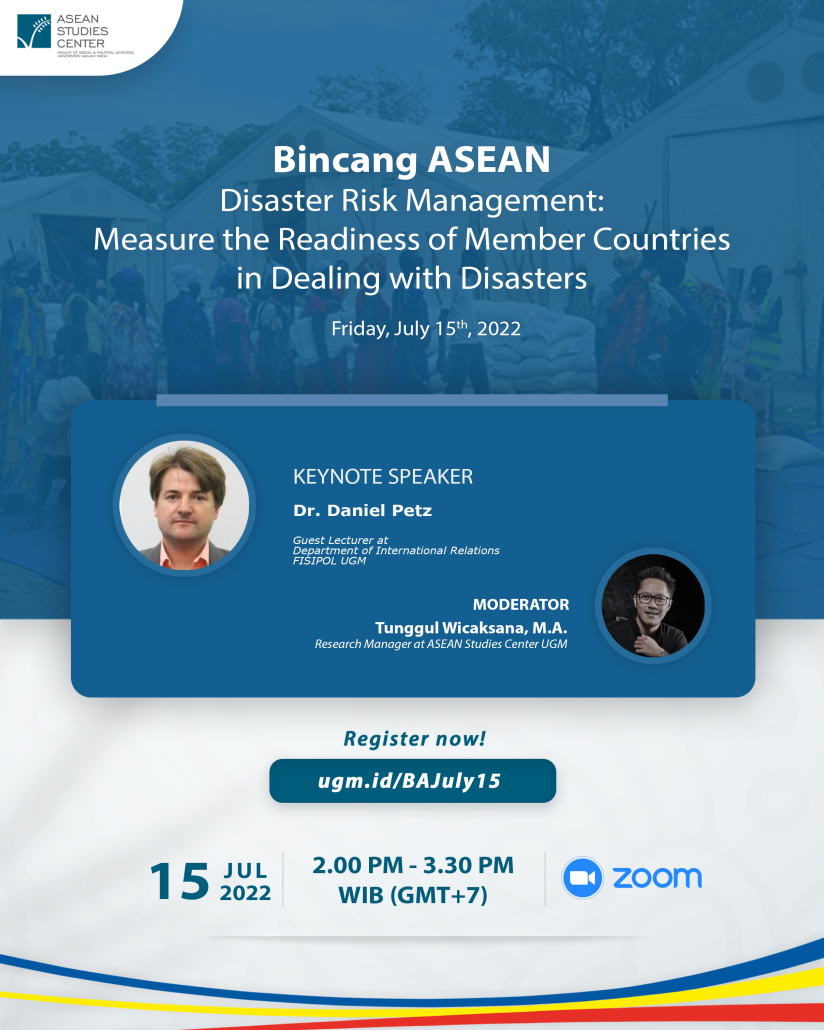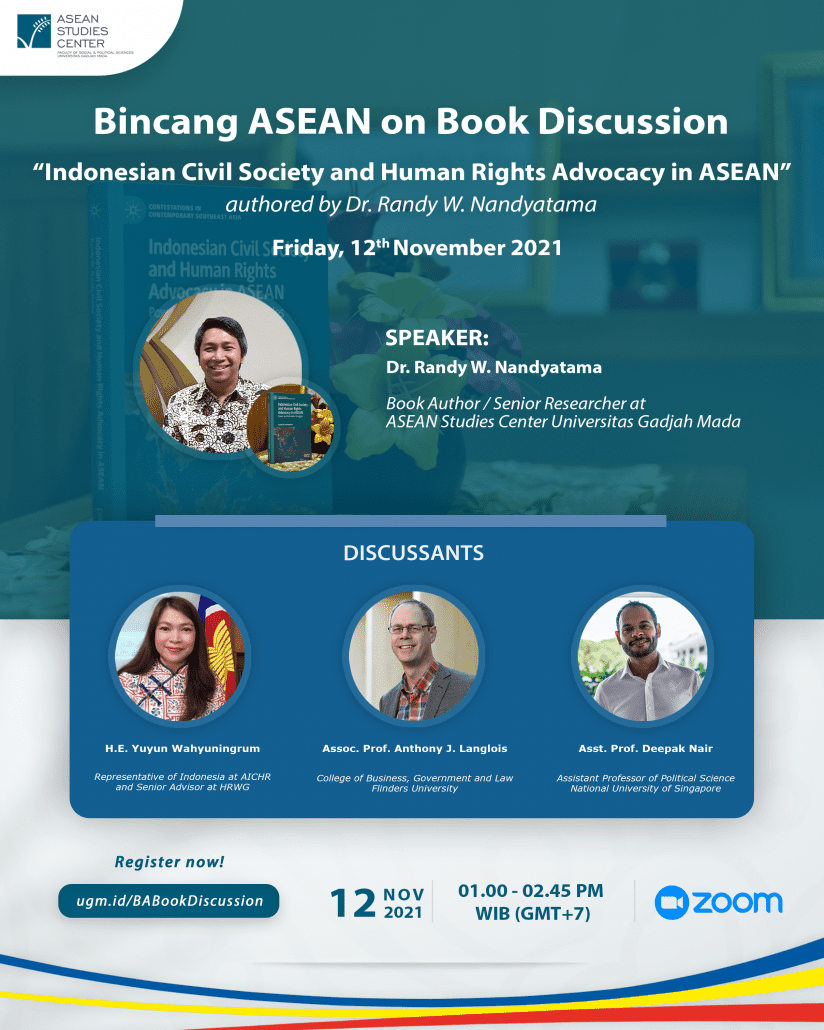BINCANG ASEAN
Bincang ASEAN is a monthly discussion held by ASEAN Studies Center, Faculty of Social and Political Sciences, Universitas Gadjah Mada (ASC) which aims to discuss the contemporary issues of ASEAN and Southeast Asia. By inviting ASEAN scholars both practitioners and academics, the participants are expected to gain a better understanding of ASEAN from an interdisciplinary perspective.





